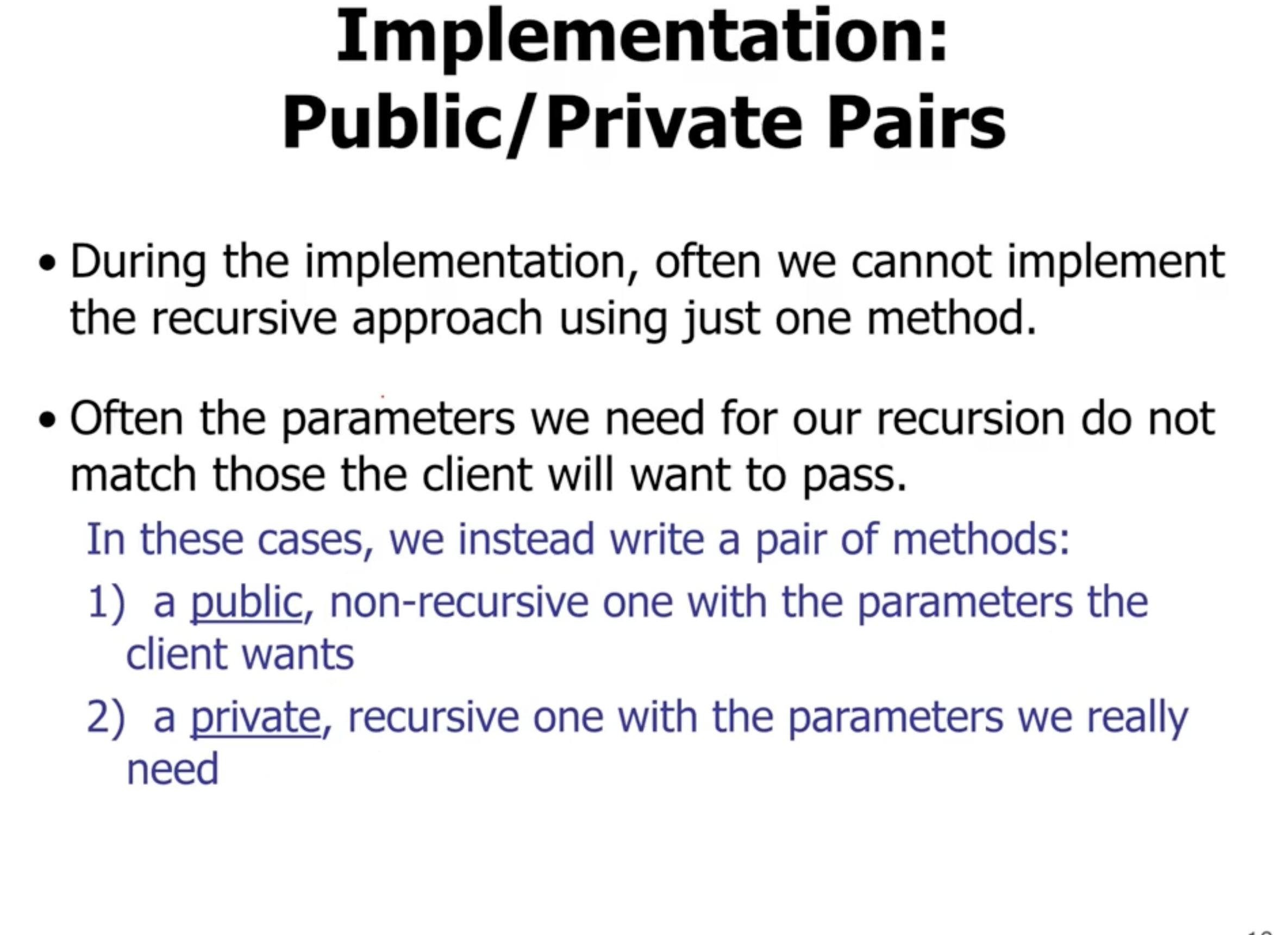Recursion #
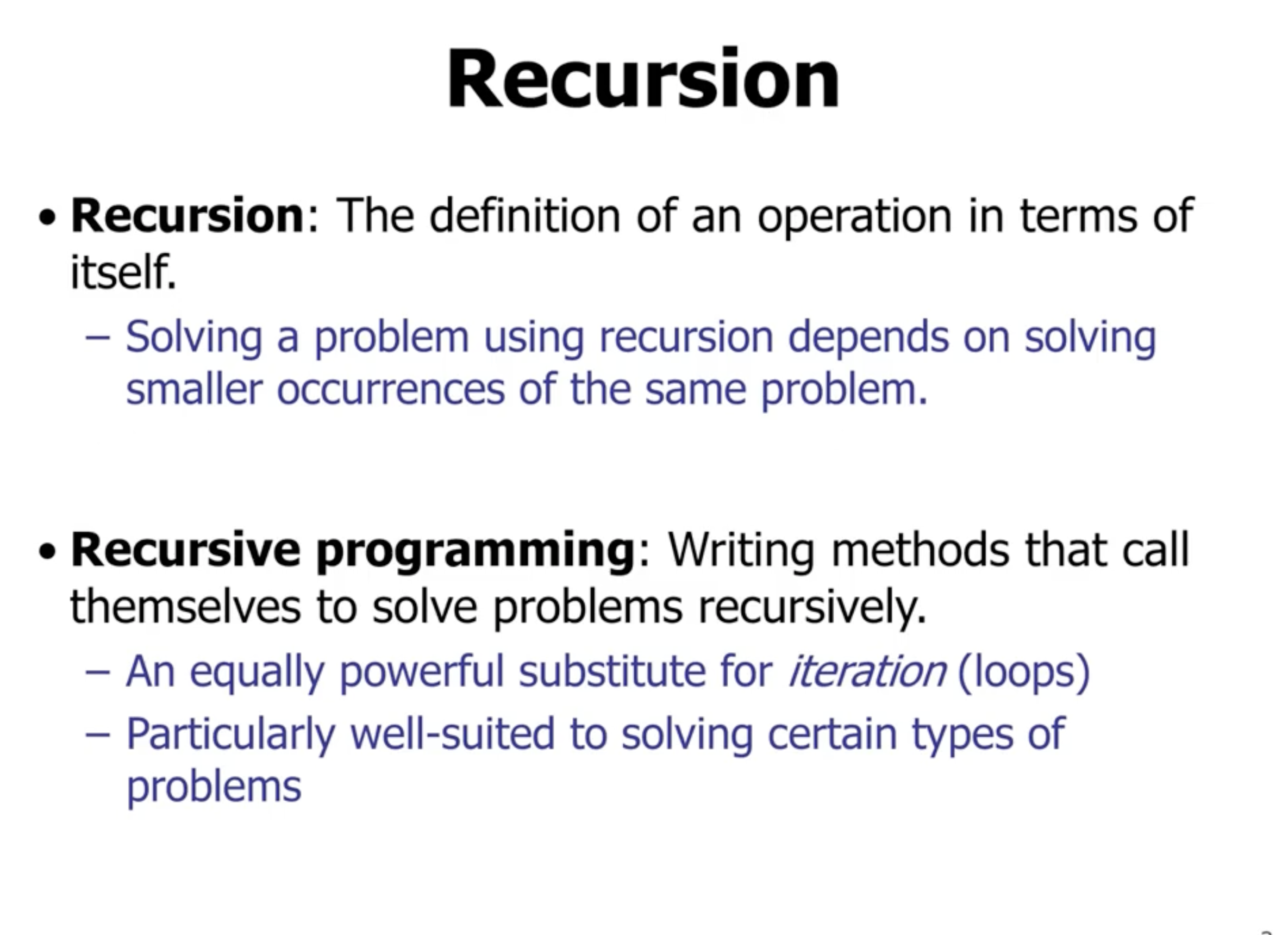

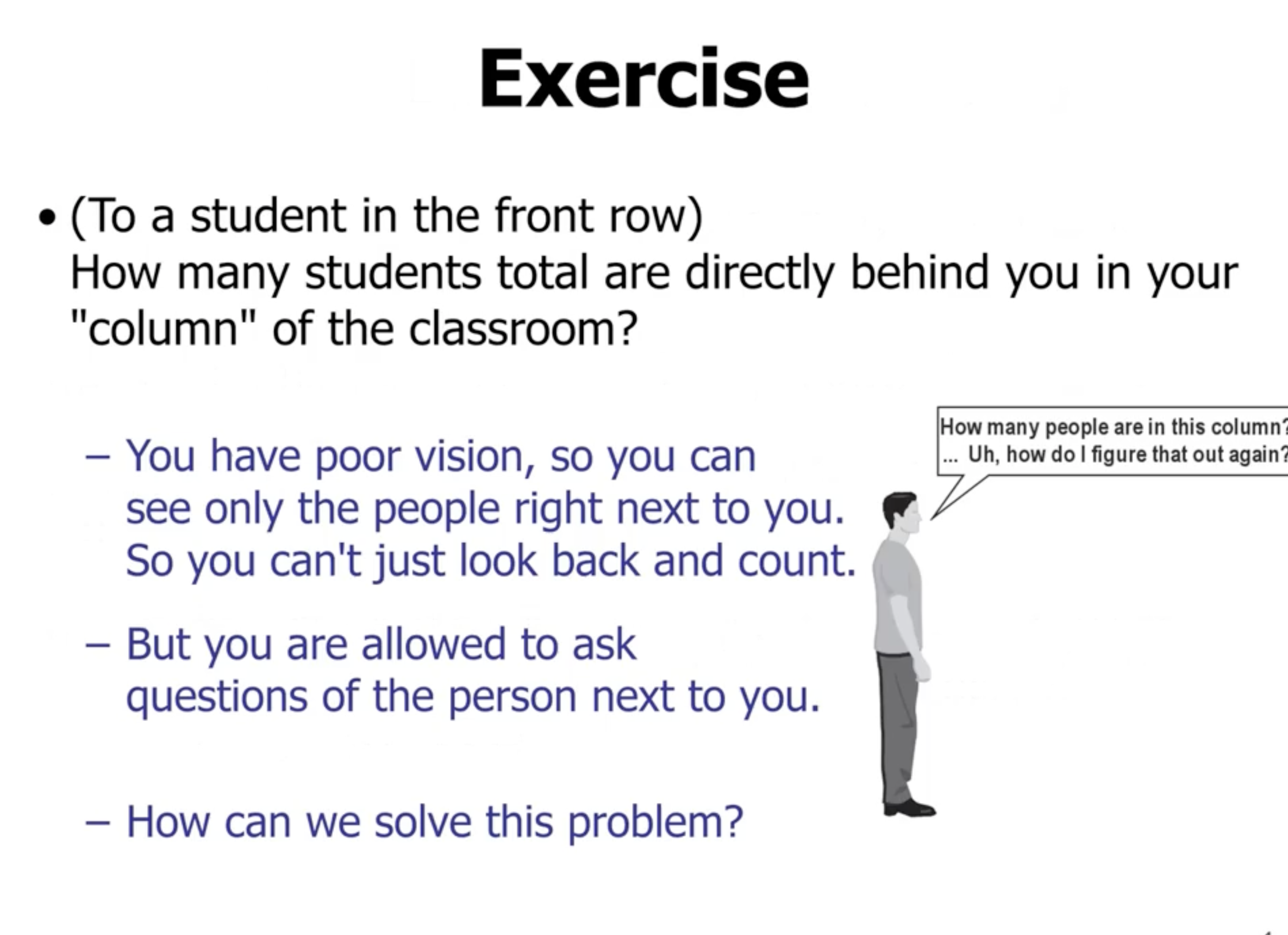
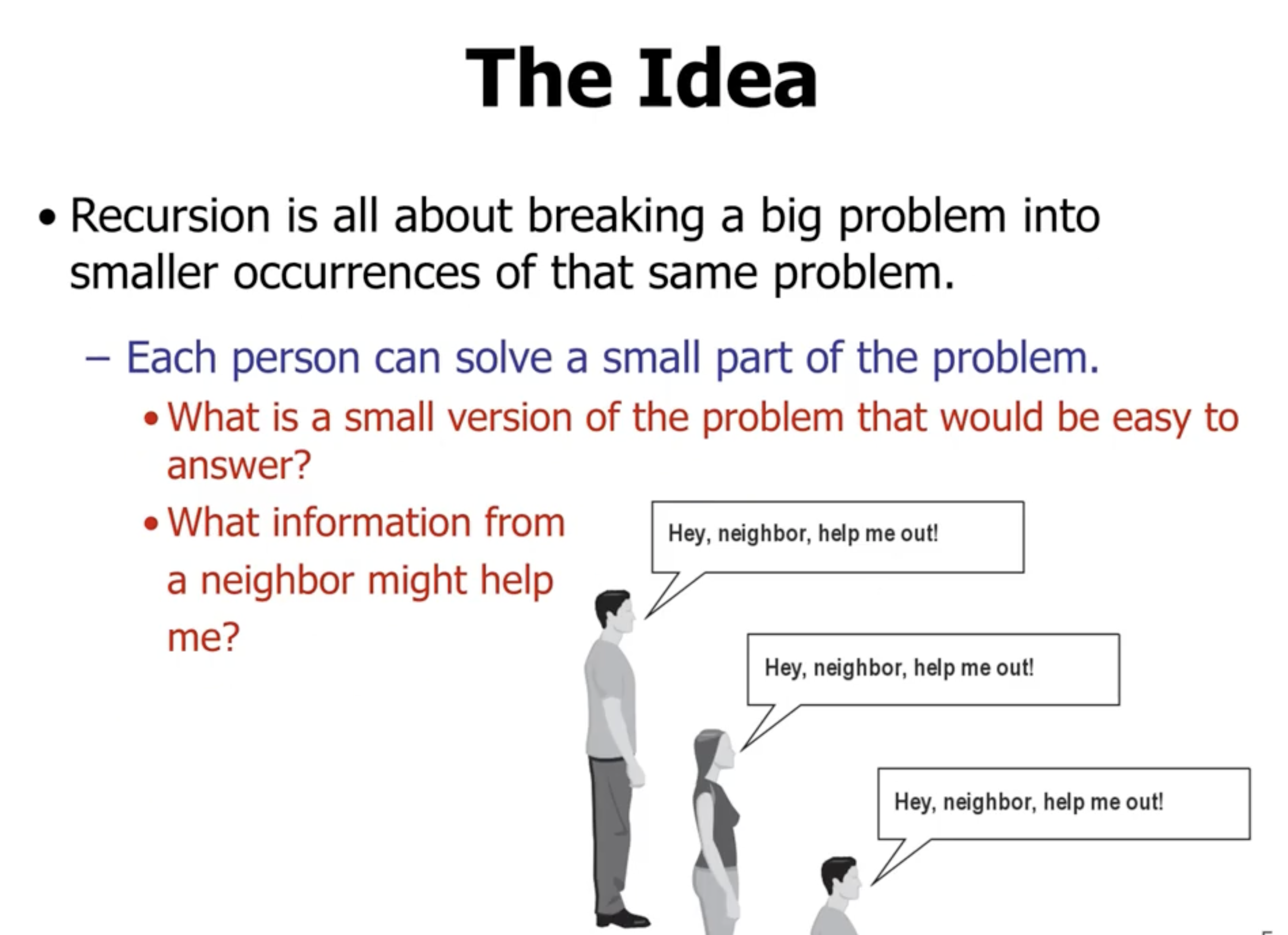
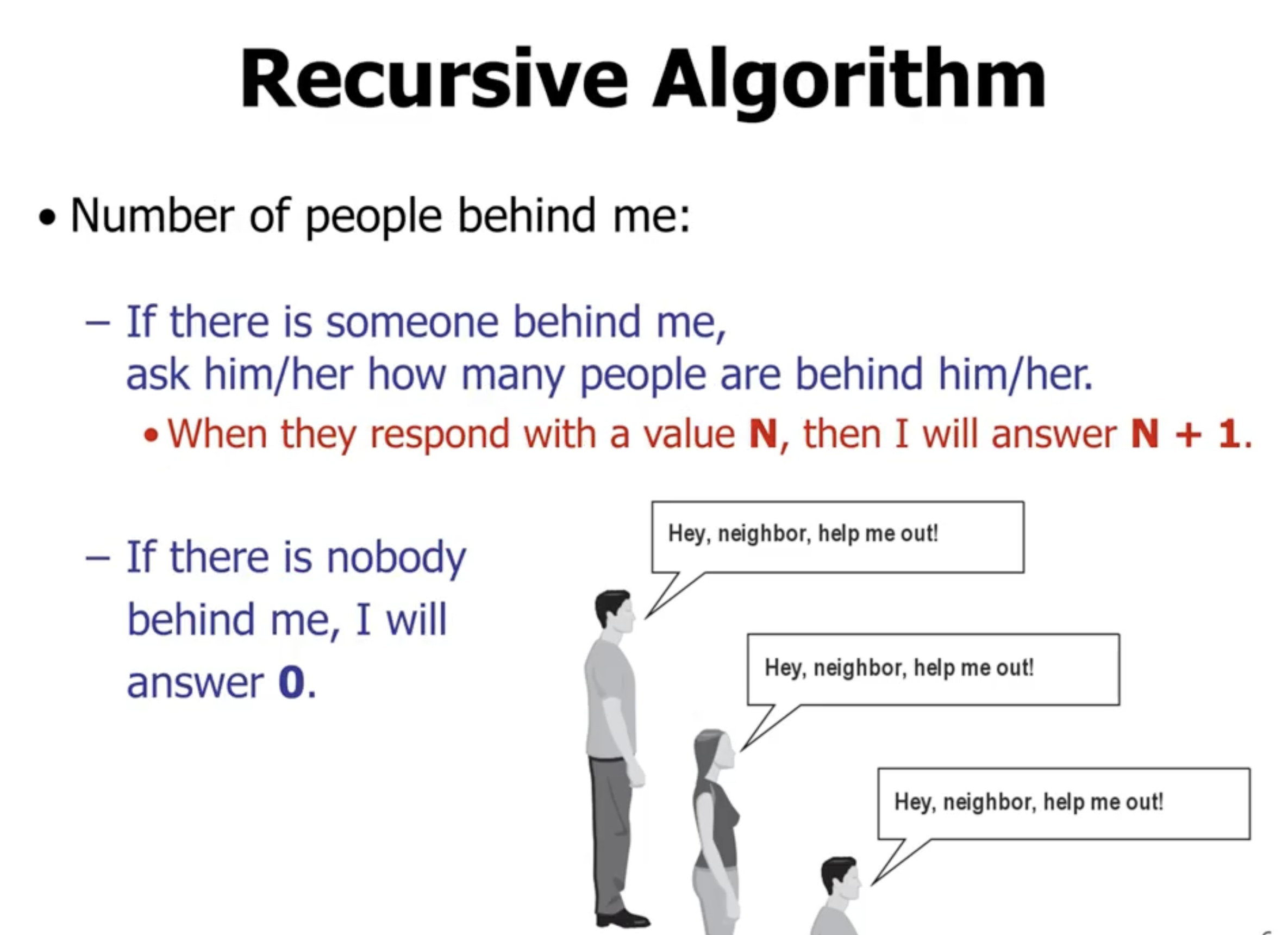
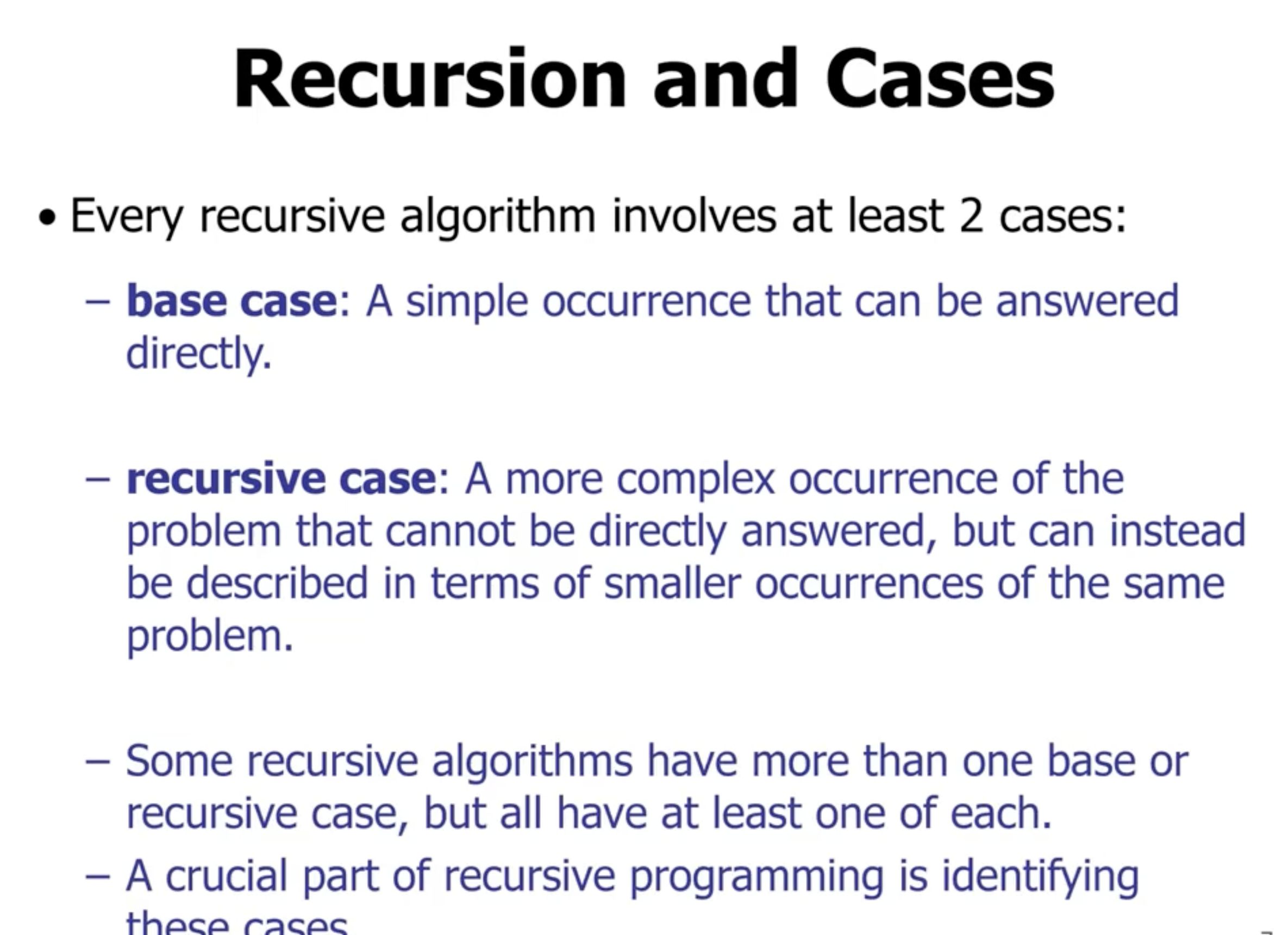
Recursive tracing #
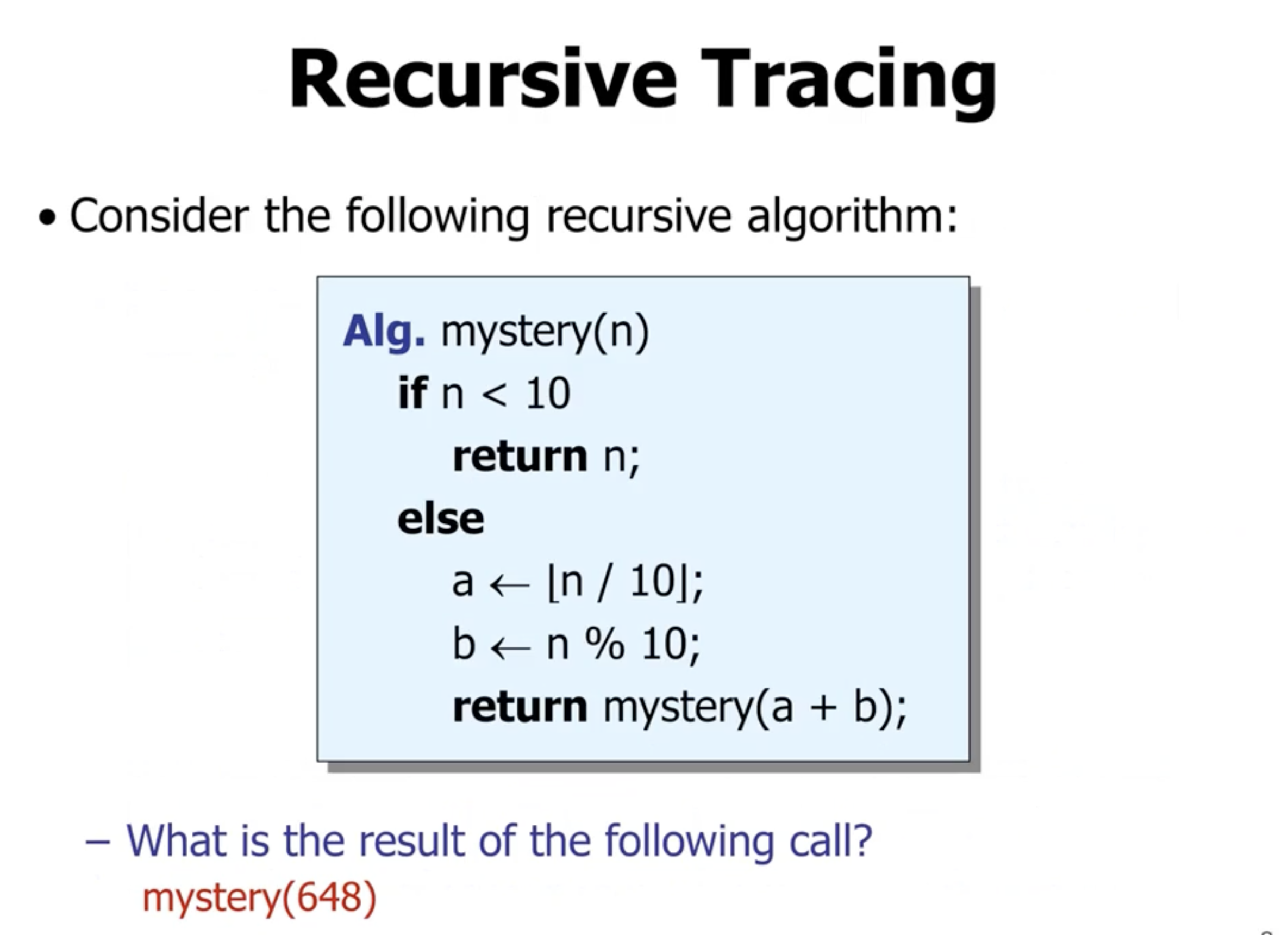
m(648)
m(72)
m(9)
return 9
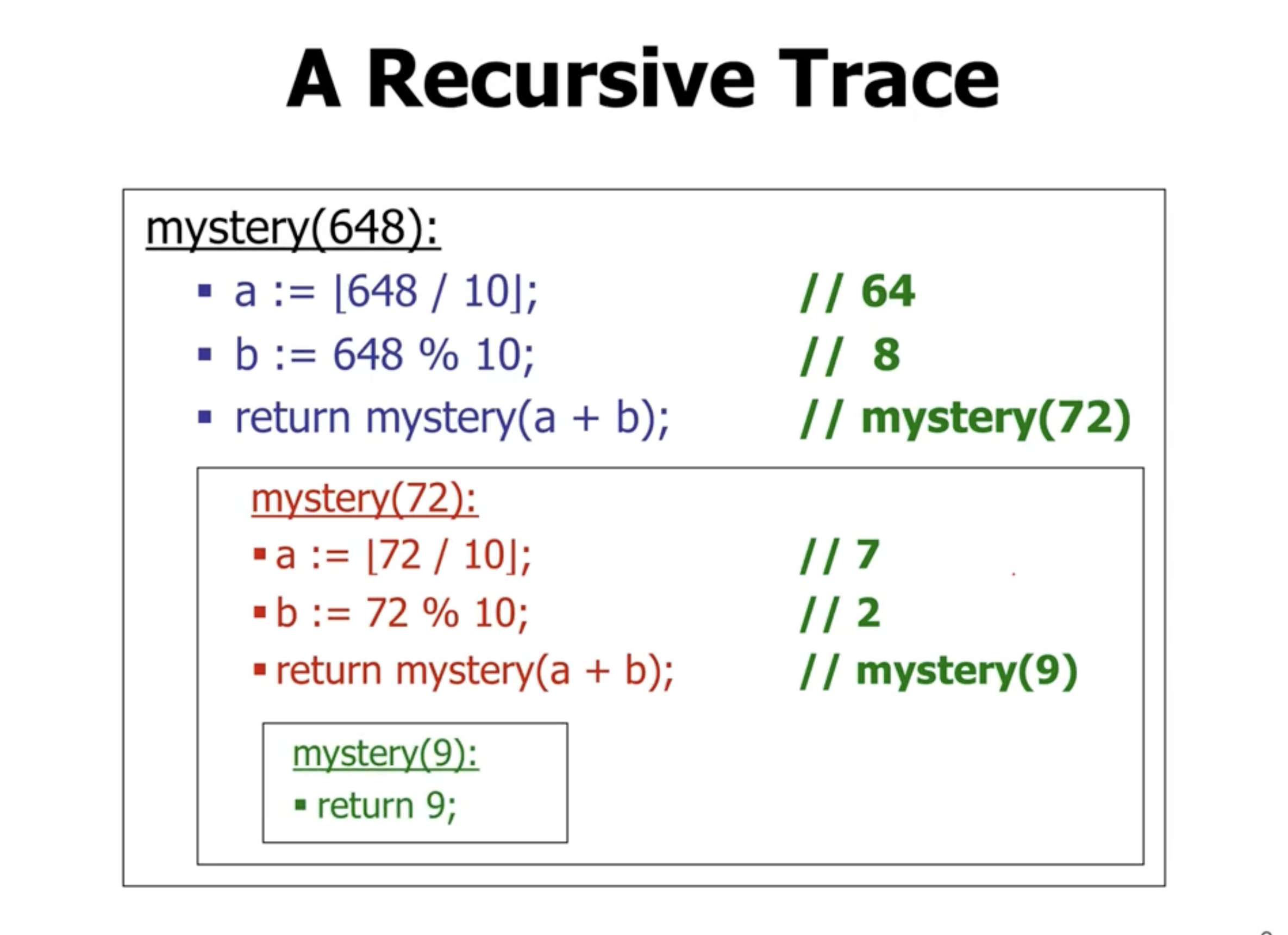
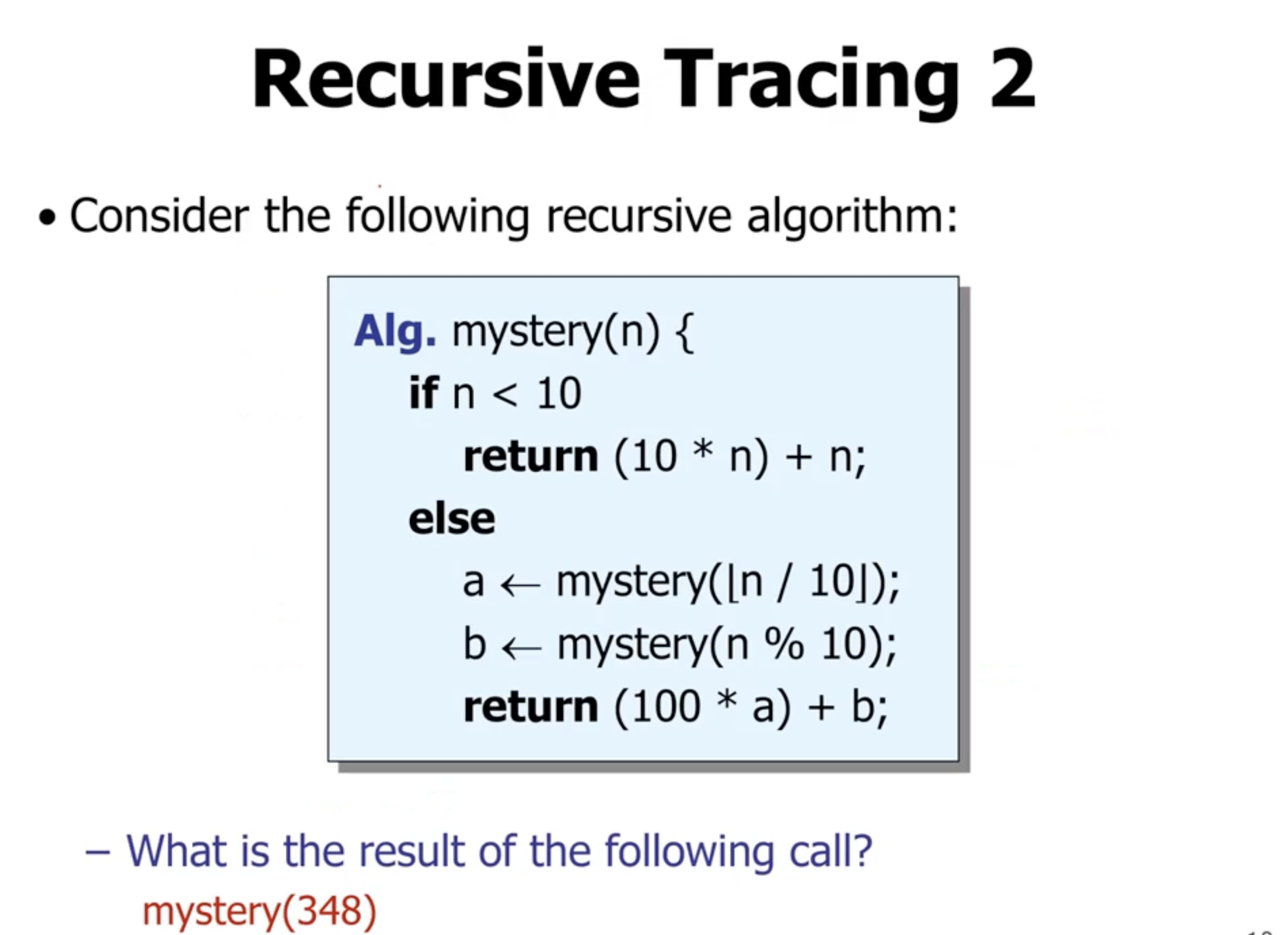
My trace
m(348)
a = m(34)
a = m(3)
return 33
a = 33
b = m(4)
return 44
b = 44
return 3344
a = 3344
b = m(8)
return 88
b = 88
return 334488
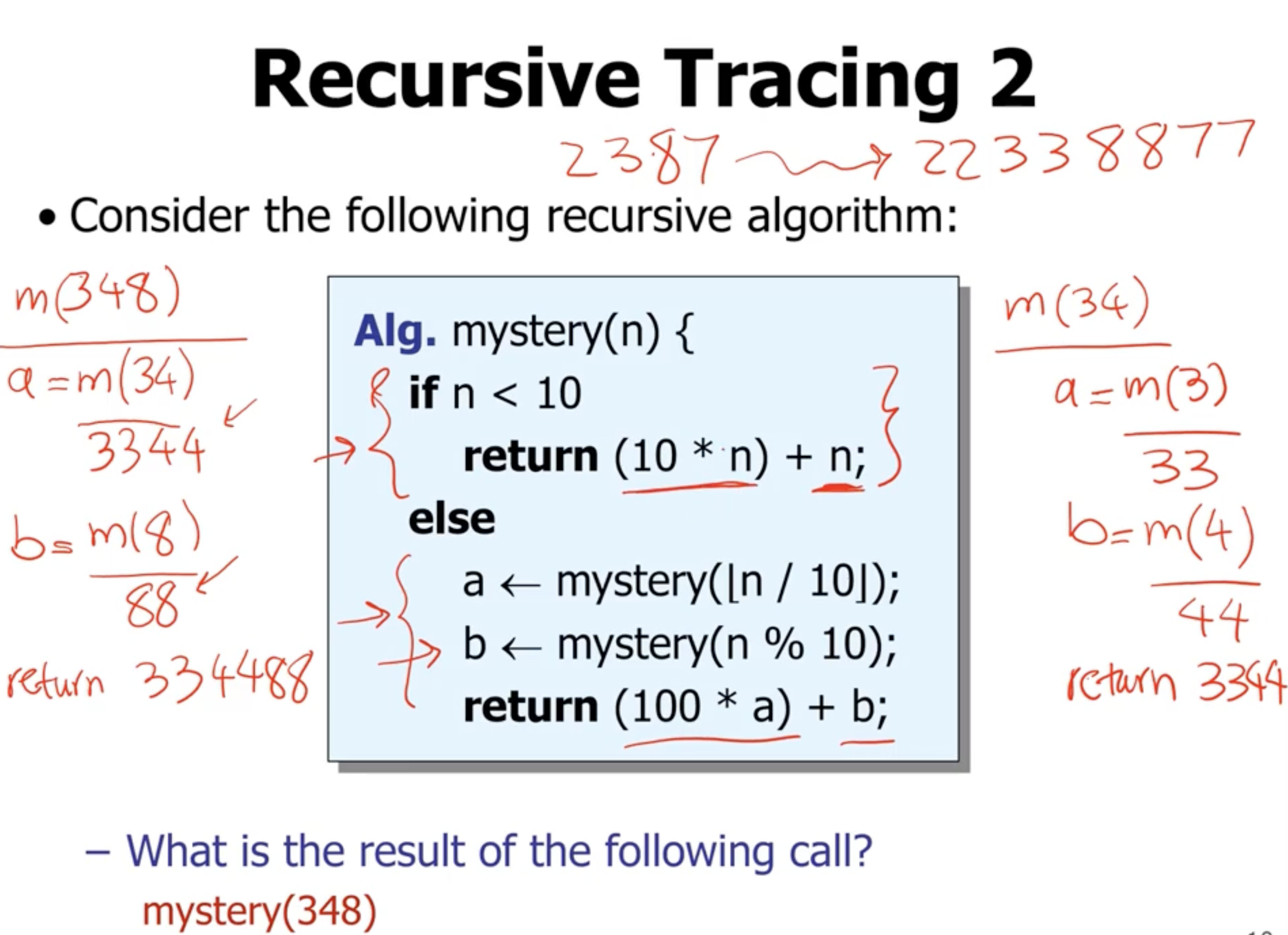
pow example
#
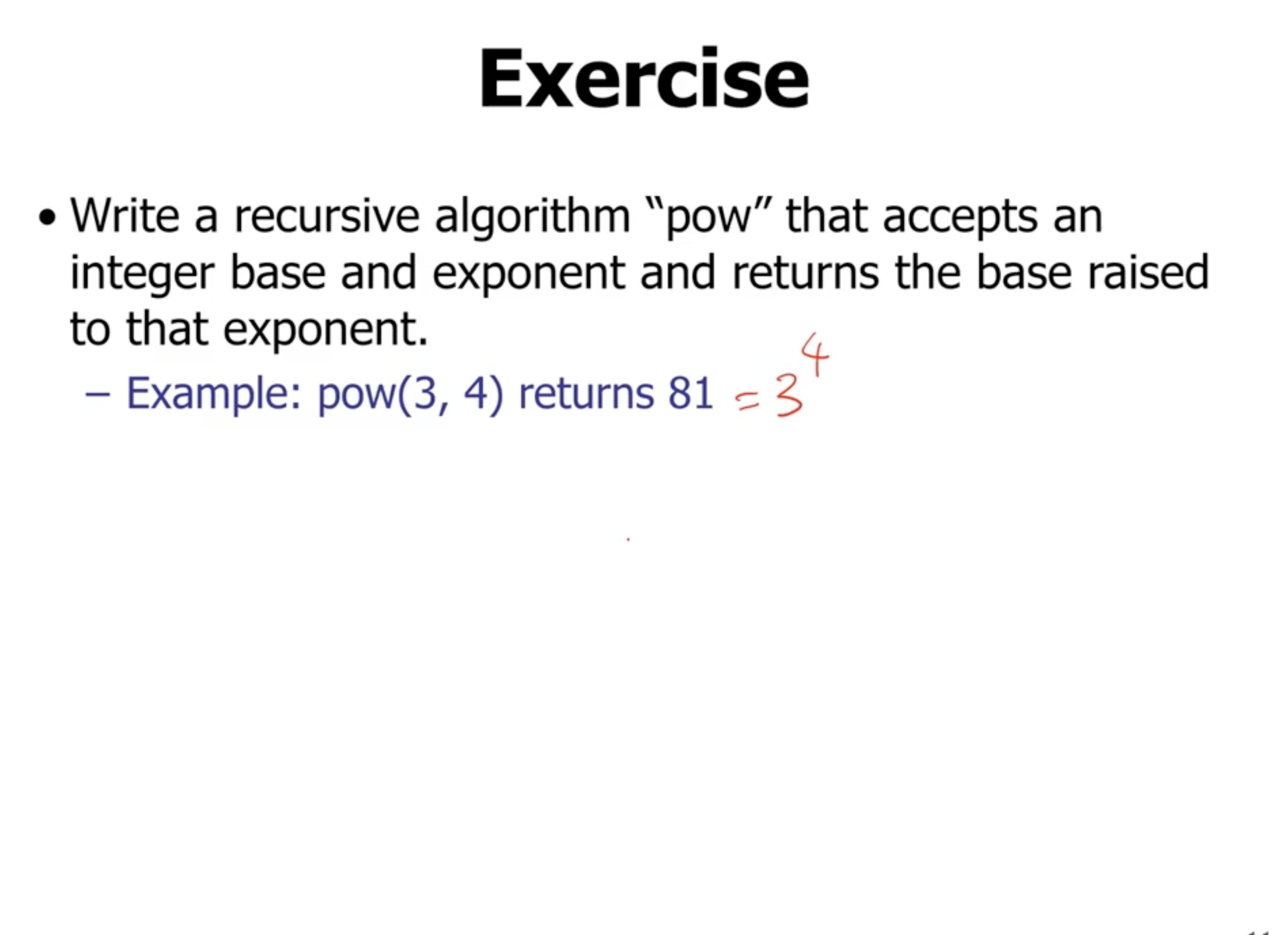
My solution
pow(b, e):
if e == 0:
return 1
return b * pow(b, e - 1)
Trace
pow(3, 4)
3 * pow(3, 3)
3 * pow(3, 2)
3 * pow(3, 1)
3 * pow(3, 0)
return 1
3 * 1
return 3
3 * 3
return 9
3 * 9
return 27
3 * 27
return 81
81
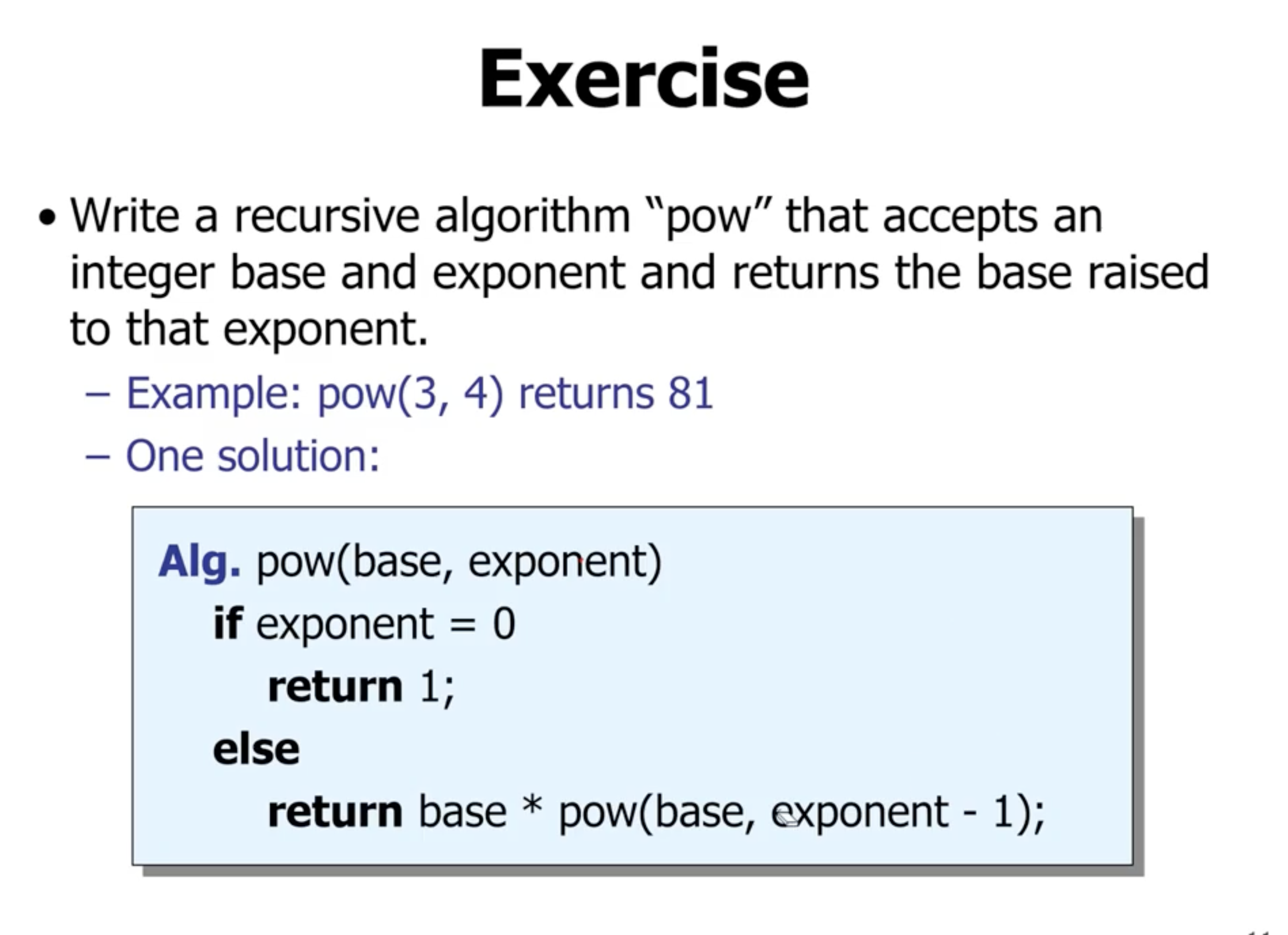
The runtime of this is \( T(n) = T(n - 1) + 1 \) , so this is \( \Theta (n) \) .
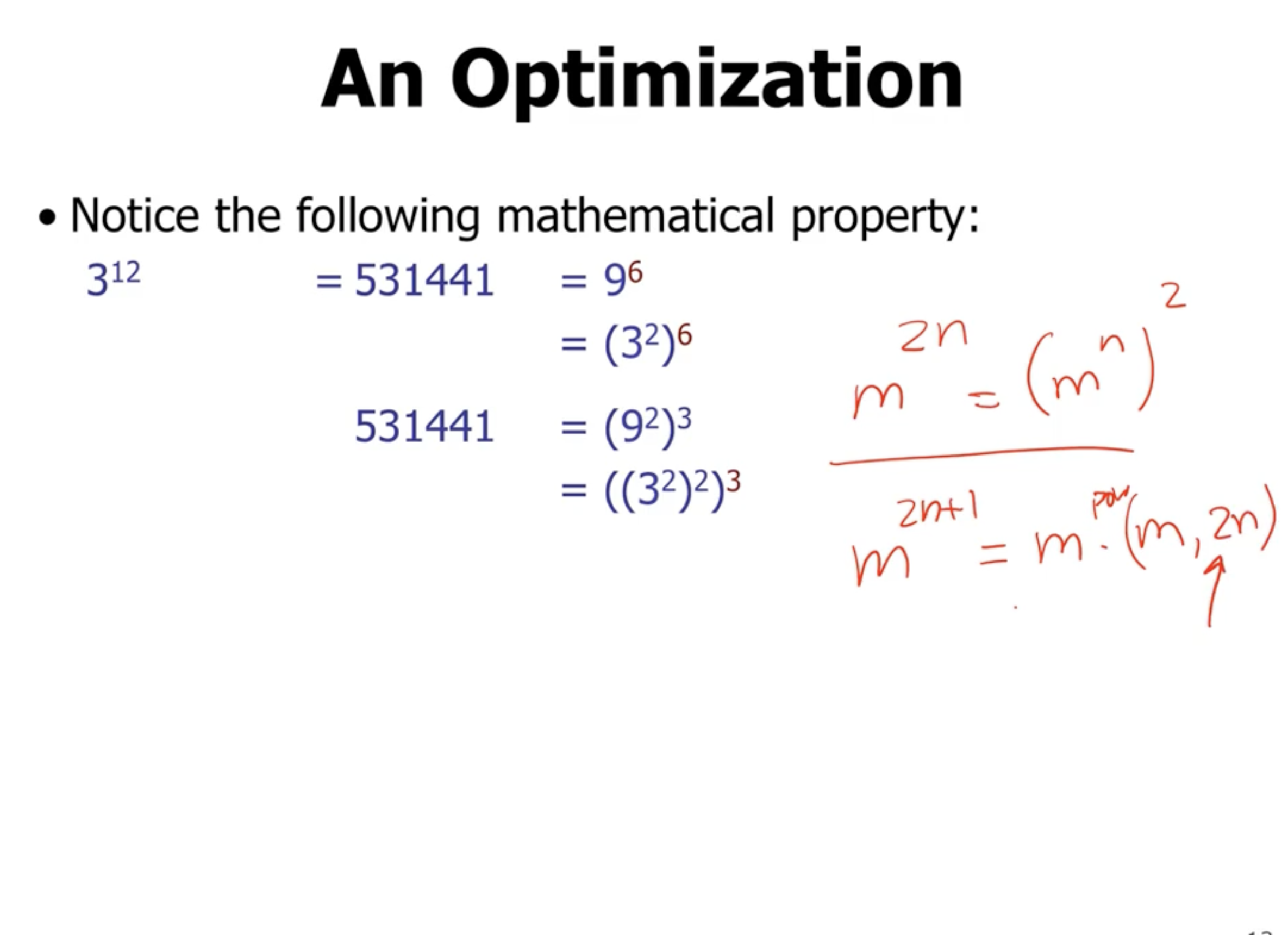
The runtime of the optimized verion is \[\begin{aligned} T(2n) &= T(n) + 1 \\ T(2n + 1) &= T(2n) + 1 \end{aligned}\] which results in a runtime complexity of \( \Theta (\lg n) \)
pow(m, n):
if n == 0
return 1
else if n % 2 == 0
tmp = pow(m, n/2)
return tmp * tmp
else
return m * pow(m, n - 1)
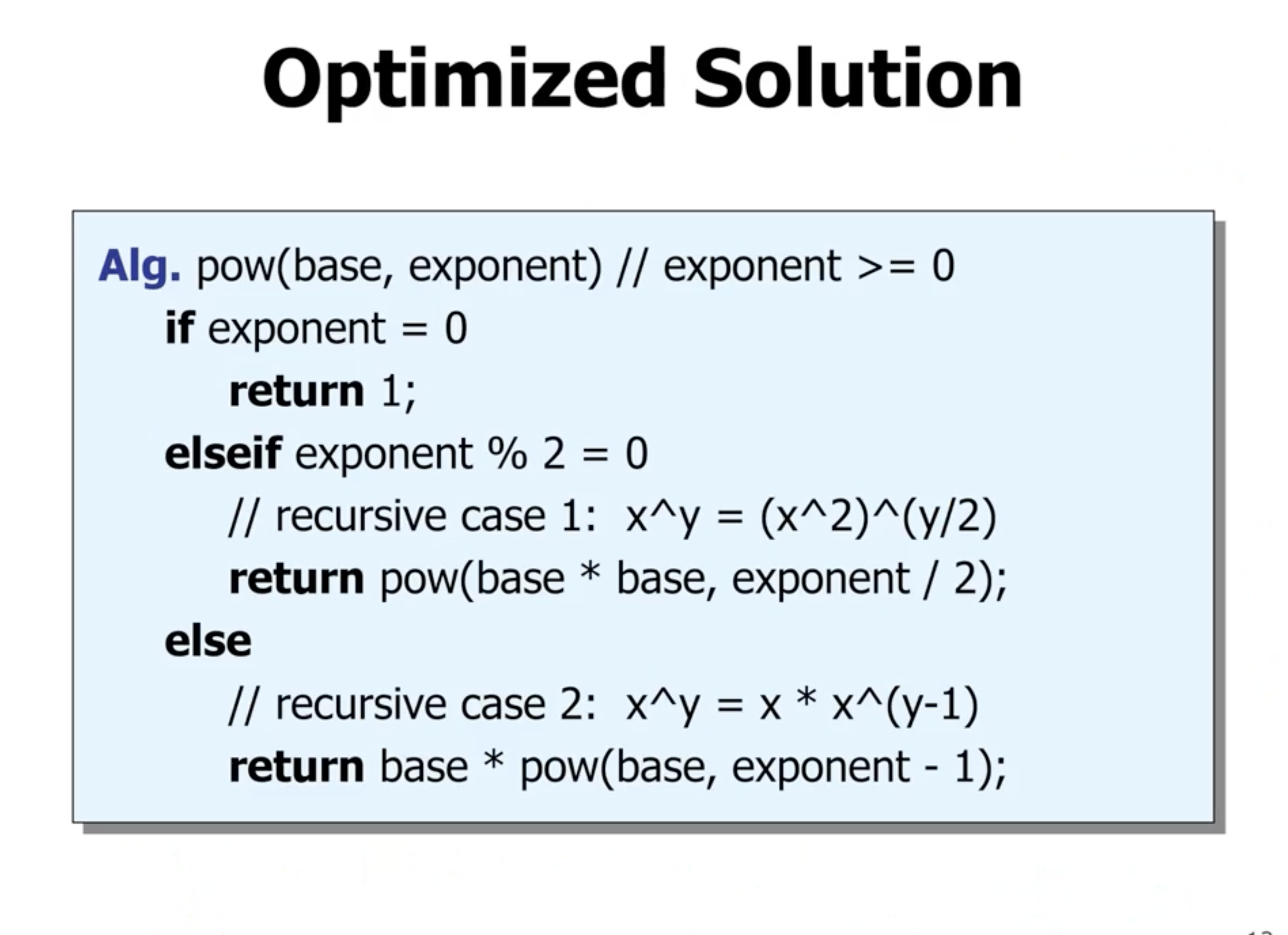
printBinary example
#
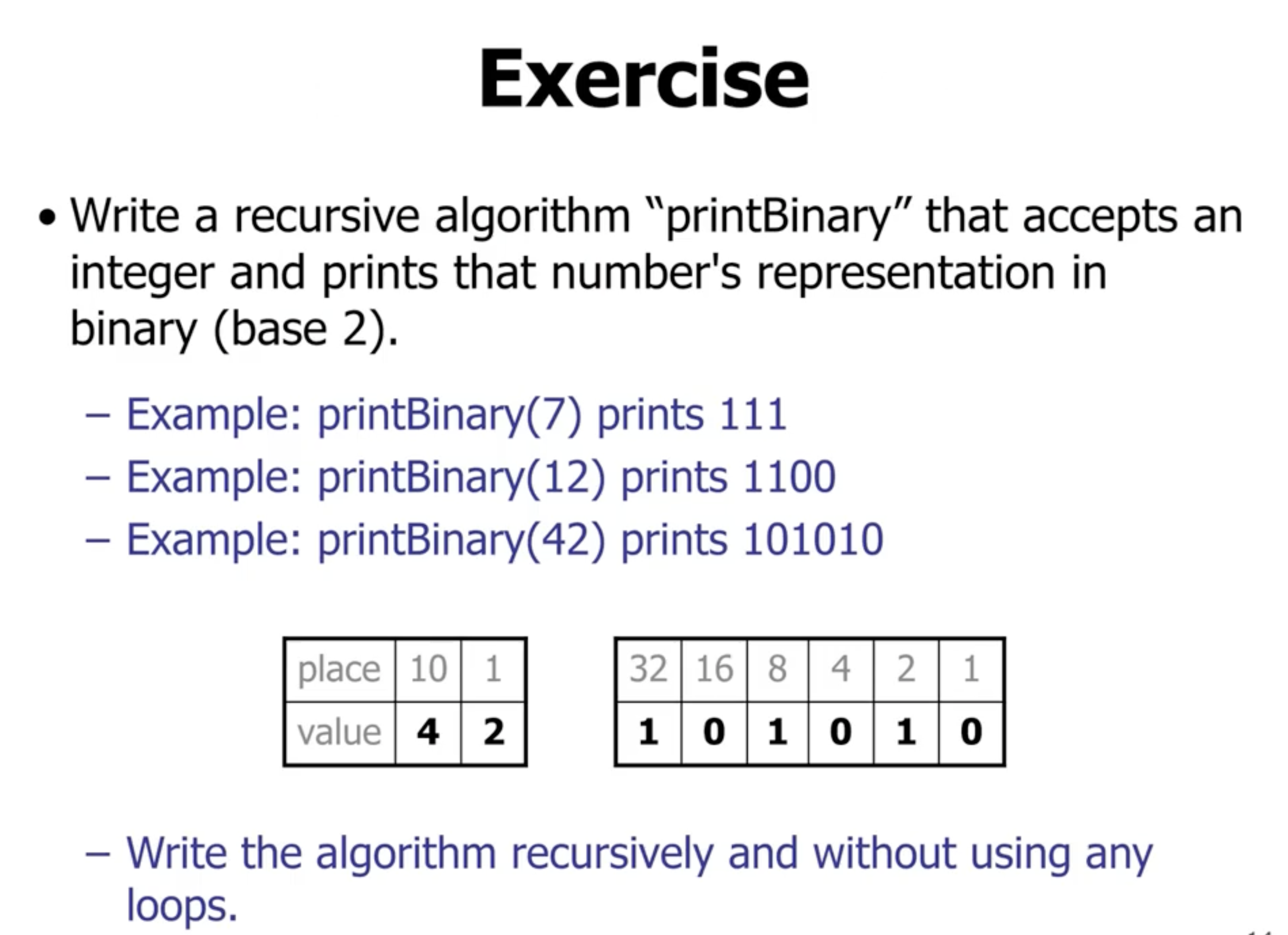
My solution in Python
def print_binary(n):
def _print_binary(n, out):
if n == 0:
print(out)
return
elif n % 2 == 0:
out = "0" + out
else:
out = "1" + out
_print_binary(n // 2, out)
_print_binary(n, "")
if __name__ == '__main__':
print_binary(42)
Output
101010
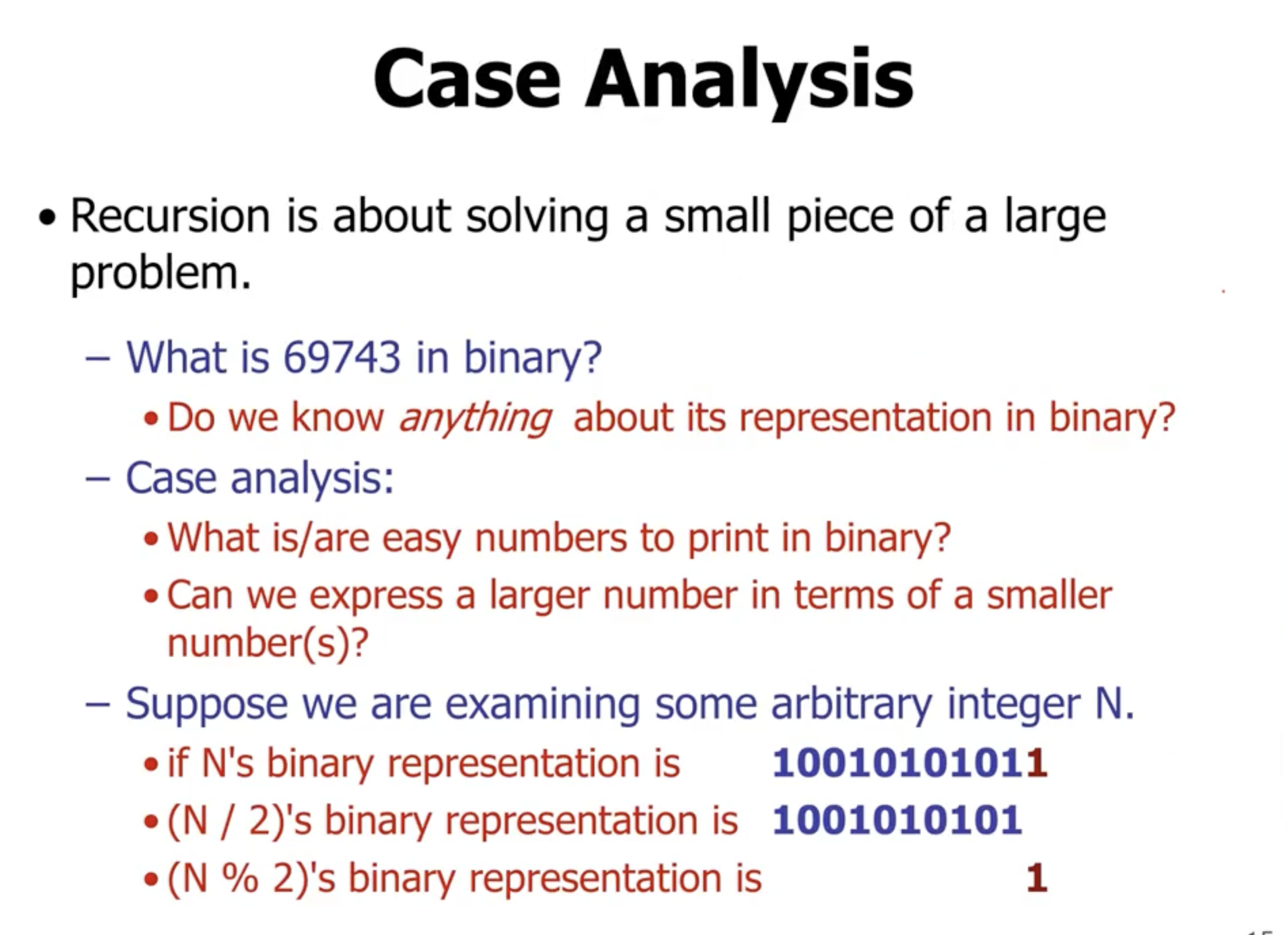
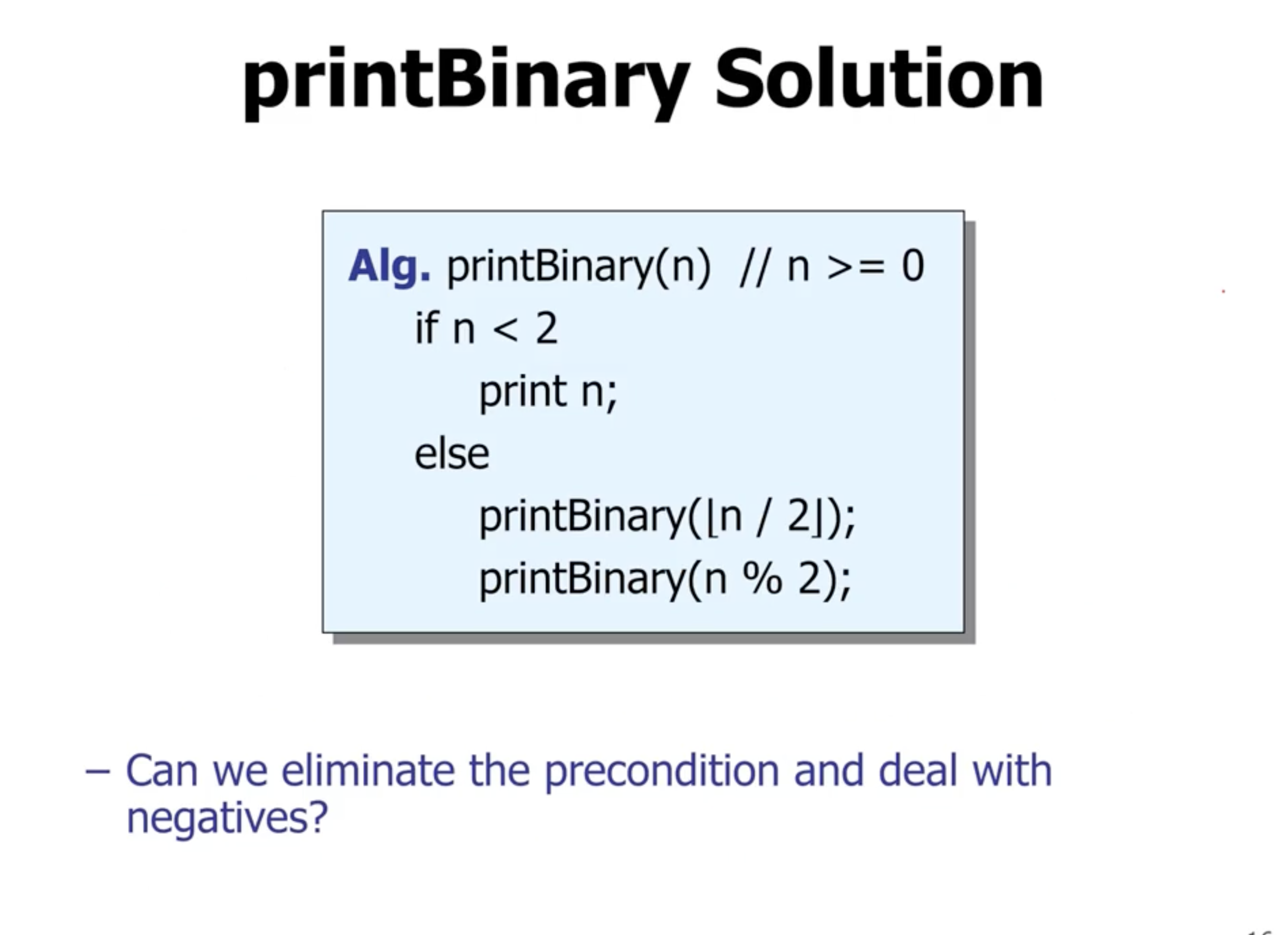
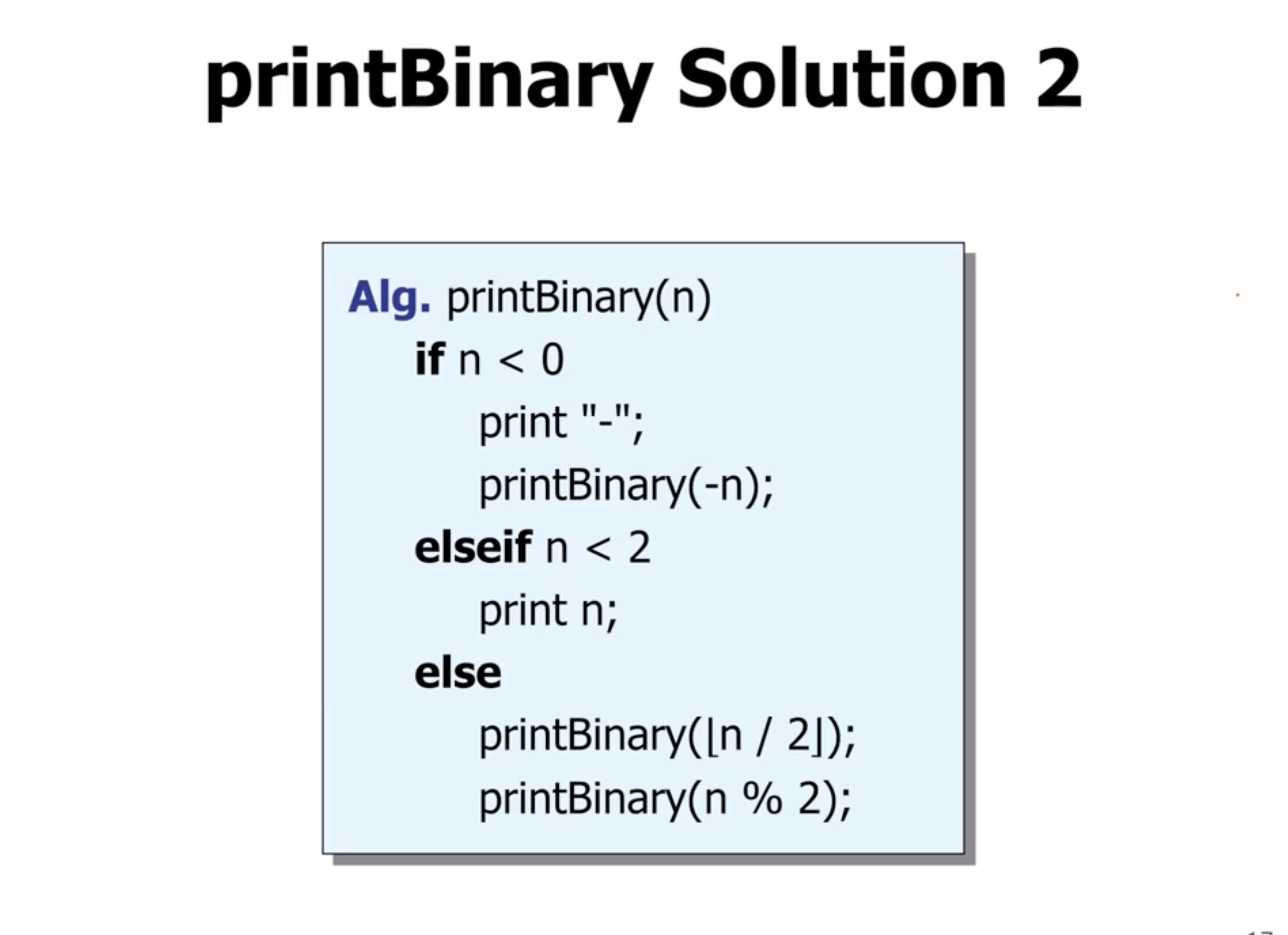
isPalindrome exercise
#
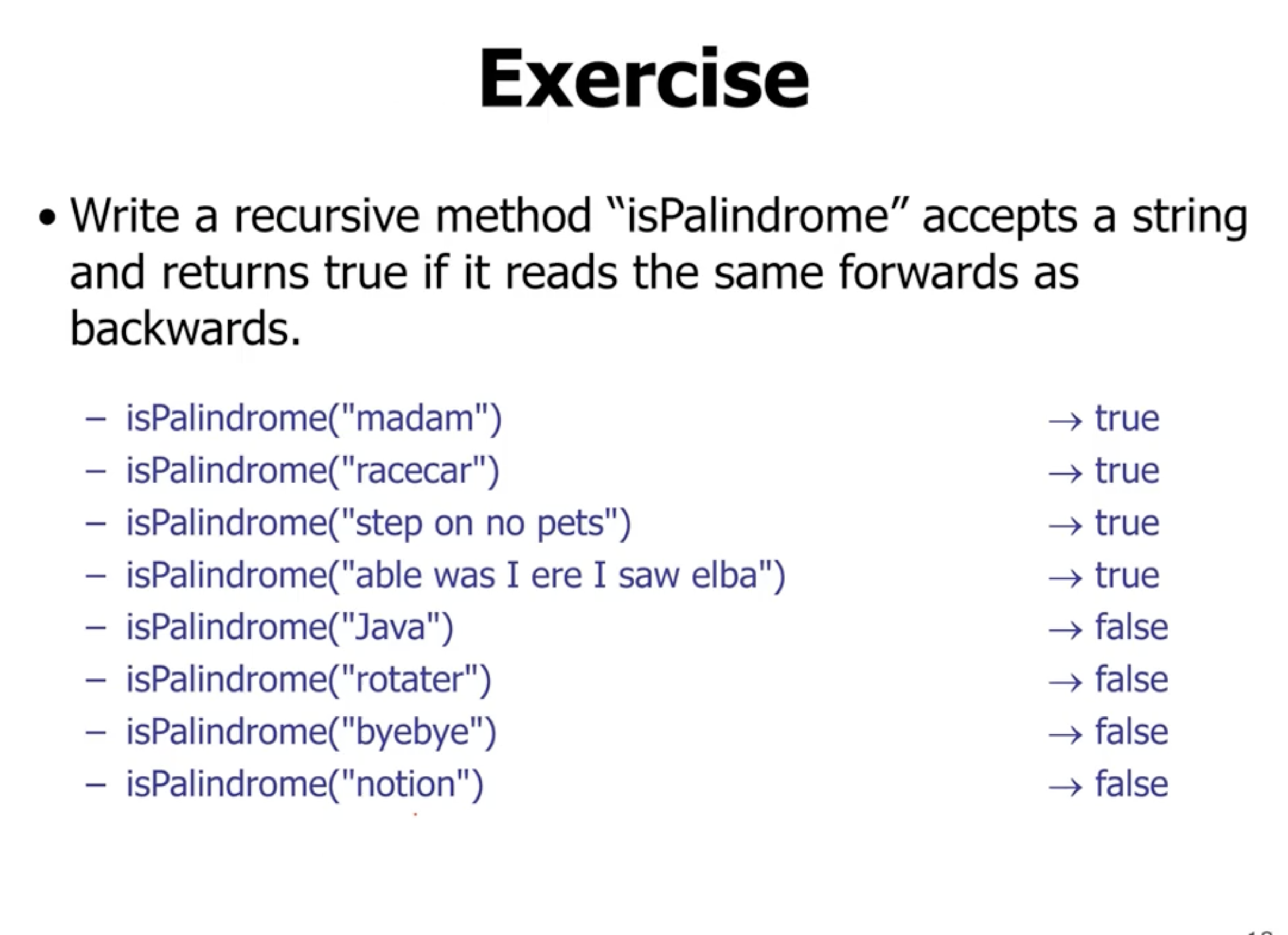
My solution in Python
def isPalindrome(s):
if len(s) == 0 or len(s) == 1:
return True
elif s[0] == s[-1]:
return isPalindrome(s[1:-1])
else:
return False
if __name__ == '__main__':
print(isPalindrome("madam"))
print(isPalindrome("racecar"))
print(isPalindrome("step on no pets"))
print(isPalindrome("able was I ere I saw elba"))
print(isPalindrome("Java"))
print(isPalindrome("rotater"))
print(isPalindrome("byebye"))
Output
True
True
True
True
False
False
False
Public/private pairs #
